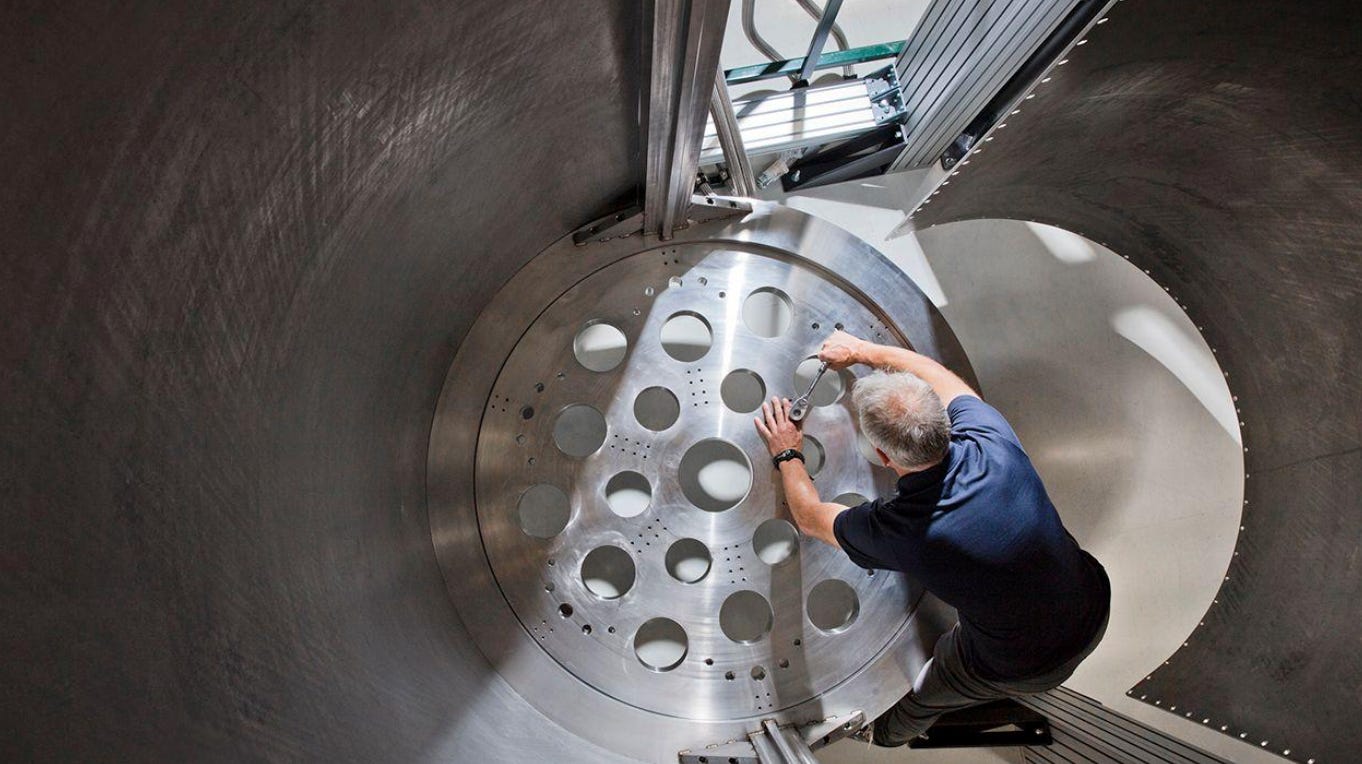Project Goldeneye: a fridge colder than outer space
PLUS: the passage of the CHIPS & Science Acts
Good evening. A light catch-up on the industry: IBM’s Goldeneye and the CHIPS Act, how will this affect the future of quantum computing in the United States?
To abide by the extreme cooling temperatures and conditions the quantum computers need to function efficiently, IBM has created Project Goldeneye: a super-fridge “colder than outer space.”
The fridge uses combined mixtures of helium-3 and helium-4 isotopes, which have great potential energy for quantum computers running in cold temperatures (the atoms attain most energy from heat, therefore are weak in colder temperatures). It remains at a temperature of thousandths of a degree above absolute zero in mK (milli-Kelvin).
Most advantages of this included the newfound spaciousness, the efficiency of accessing the hardware itself, and the fact that it is able to replicate (better yet outdo replication) of temperatures in pace allowing experiments to be run on qubit productivity.
The CHIPS & Science Act
The chip manufacturing supply/trade has slowed down immensely from factors like the pandemic, and there’s been a shortage practically everywhere, mostly in the beginning of the year. The CHIPS & Science Act is going to put an emphasis on semiconductor manufacturing. This investment will make room for technological advancements, such as quantum computing.
More importantly, the CHIPS & Science Acts have been added to a collection of government-funded investments into quantum computing research backed by the Department of Energy, the National Science Foundation, and the National Institute of Standards and Technology. This is an important step towards greater national innovation.
📈 Quantum Stock Market Watch
Closing prices on September 14, 2022
Americans are slowly being spared with slightly decreased gas prices over the country—and it’s making its obvious mark with increased consumer spending.
✂️ Snippets
Rigetti Expands QCS™ Availability to Microsoft’s Azure Quantum Platform
7 Quantum Computing Stock Picks to Beat the September Market Slump
Simple solids can mimic complex electronic states
New quantum algorithm solves critical quantum chemistry problem through adaptation along a geometric path









